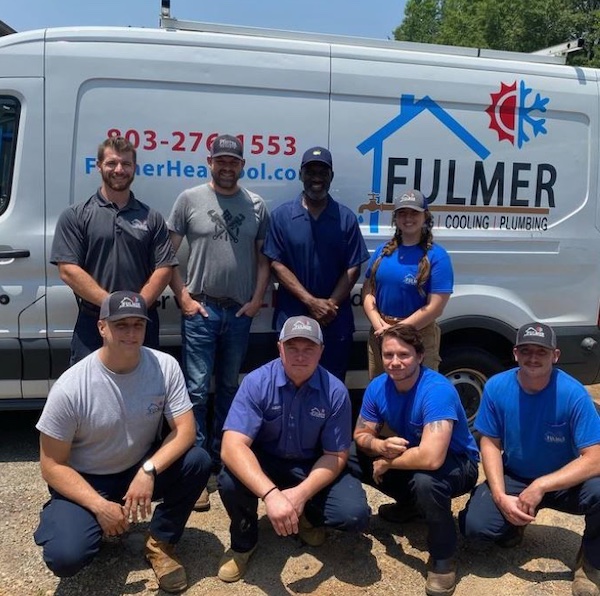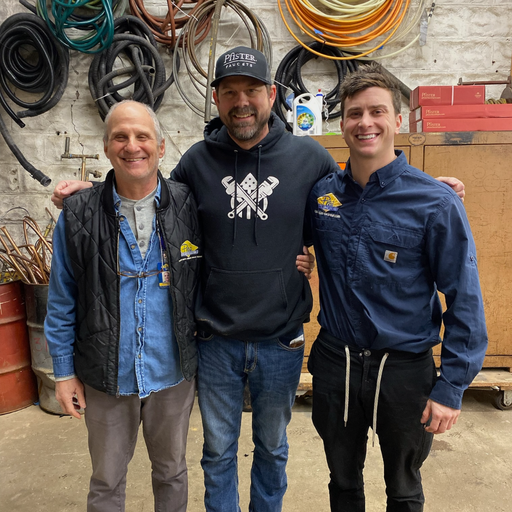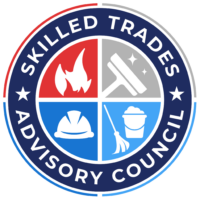According to Lowe’s proprietary research, 66% of Pros say they’re excited about the potential of technology to improve their efficiency, with retailer-specific mobile apps and built-in tools ranking highly among innovations they see as having the greatest potential to improve their day-to-day. Purchase Authorization, a new feature from Lowe’s within the MVPs Business Tools suite Read more
HVAC

 According to Lowe’s proprietary research, 66% of Pros say they’re excited about the potential of technology to improve their efficiency, with retailer-specific mobile apps and built-in tools ranking highly among innovations they see as having the greatest potential to improve their day-to-day. Purchase Authorization, a new feature from Lowe’s within the MVPs Business Tools suite of offerings, enables account holders to provide a QR code to a designated runner for in-store purchases and pick-ups, with set time and spending limits. This creates a fast and seamless in-store checkout process, with no more credit card handoffs or confirmation phone calls needed. The tool is now available online and via the Lowe’s app, exclusively for MVPs Pro Rewards and Partnership Program members. Learn more here.
According to Lowe’s proprietary research, 66% of Pros say they’re excited about the potential of technology to improve their efficiency, with retailer-specific mobile apps and built-in tools ranking highly among innovations they see as having the greatest potential to improve their day-to-day. Purchase Authorization, a new feature from Lowe’s within the MVPs Business Tools suite of offerings, enables account holders to provide a QR code to a designated runner for in-store purchases and pick-ups, with set time and spending limits. This creates a fast and seamless in-store checkout process, with no more credit card handoffs or confirmation phone calls needed. The tool is now available online and via the Lowe’s app, exclusively for MVPs Pro Rewards and Partnership Program members. Learn more here.
Pfister® Faucets, a trusted leader in the plumbing industry since 1910, is kicking off Season 4 of American Plumber Stories, a popular docuseries that features the lives of plumbers throughout the U.S. A new generation is seeing the plumbing trades with new eyes. Now, in its fourth season, the wildly successful American Plumber Stories docuseries Read more
Pfister® Faucets, a trusted leader in the plumbing industry since 1910, is kicking off Season 4 of American Plumber Stories, a popular docuseries that features the lives of plumbers throughout the U.S. A new generation is seeing the plumbing trades with new eyes. Now, in its fourth season, the wildly successful American Plumber Stories docuseries will highlight stories of building the workforce, told by young plumbers whose lives are being changed in phenomenal ways by the plumbing trade.

‘Young Guns,’ featuring Fulmer Plumbing out of South Carolina, premiers September 5.
American Plumber Stories aims to promote the plumbing trade to the next generation of professionals. The show highlights the stories of plumbers around the nation including how they got started in the plumbing trade and the passion they have for their profession. These stories show how they built a career that allows them to lead financially rewarding and fulfilling lives.
Over the past year, the docuseries built up a large following in the plumbing industry who passionately supports the mission that Pfister® Faucets, the creator of the docuseries, is pursuing. From plumbing businesses, plumbing product manufacturers to industry associations, many were inspired to join forces to turn American Plumber Stories into the movement it has become today.

‘Plumb Market,’ featuring Petri Plumbing out of New York, premiers September 25.
RIDGID, who has been instrumental as a partner since Season 2, will be joined by four new partners in Season 4, manufacturing leaders Oatey, Cintas, A. O. Smith, and State Water Heaters. These partnerships provide a tremendous footprint to distribute American Plumber Stories episodes on their high-reach social media platforms and to promote the docuseries at their trade show booths across the country.
“RIDGID is celebrating our 100-year anniversary this year, and we’ve had a lot of fun sharing stories with plumbers from the past, present and future. American Plumber Stories, and the work Pfister® Faucets is doing with this program, have helped a wider audience hear stories like these, and get to know and appreciate the hard work that goes into this profession. We’re excited to continue to support this show and its mission,” says Becky Brotherton, Director of Brand & Engagement Marketing, RIDGID.
Mechanical Hub, the largest independent plumbing-focused online resource platform, is collaborating with Pfister®Faucets to distribute American Plumber Stories episodes through its media platforms to nearly 1M social and digital media followers. Plumbers who are featured in the episodes will also appear on the Appetite for Construction podcasts that go into more depth about each of the inspiring stories in Season 4.
“After hearing the feedback from our listeners, as well as from our digital and social media audiences, we highly anticipate another year of partnering with Pfister® in supporting the American Plumber Stories docuseries on YouTube. We’ve seen in recent years just how important and essential the men and women that make up our plumbing family are to the health of the country,” says John Mesenbrink, President, Mechanical Hub.
“We feel that the American Plumber Stories series highlights and shines a bright light on the plumbers and organizations who help build the backbone of our nation, while encouraging the next generation of workers to join the trades,” says Mesenbrink.
The Plumbing-Heating-Cooling Contractors — National Association (PHCC), the premier trade organization for plumbing and HVAC professionals, has teamed up with American Plumber Stories and supports its message on a national level to its members, as well as in state and local chapters throughout the country.
One of the most visible faces of American Plumber Stories is its host, Craig Morgan. The country music icon is a TV personality (Beyond the Edge on CBS and others), celebrated outdoorsman, member of the Grand Ole Opry and Army veteran. Morgan has charted more than 25 songs on Billboard Top 100.
While Season 1 entertained with a look into the lives of ordinary plumbers with sometimes extraordinary lifestyles, Season 2 emphasized education in the trade and the opportunity this rewarding profession has to offer. Season 3 highlighted some of the most inspiring stories, told by plumbers whose lives were changed forever by the trade and Season 4 will share the stories of job creation, workforce development and solutions for those getting into the trade.
Season 4 Episode Release Week, Title and Participants
- September 5th, Young Guns, Fulmer Heating, Plumbing & Cooling (South Carolina)
- September 25th, Plumb Market, Petri Plumbing (New York)
- October 16th, Roping the Future, Big Sky Plumbing (Utah)
- November 6th, Royal Flush, Universal Plumbing (Nevada)
- November 27th, Influence-HER, Deluxe Plumbing (Pennsylvania)
- December 18th, Plumbing to Perform, Louisville Plumbing Company (Kentucky)
New episodes of American Plumber Stories can now be watched on www.AmericanPlumberStories.com.
Interested plumbers who would like to share their own story can do so here: https://www.americanplumberstories.com/pages/i-am-an-american-plumber

Richard Karn, Jon Dorenbos and Tommy Mello to take centerstage during 2023 Service World Expo October 3-6, 2023 Service World Expo has been the nation’s leading event for HVAC, plumbing, electrical, smart home, remodeling and general business professionals. Now in its seventh year, the show is set to return October 3-6, 2023 at the Phoenix Convention Center in Phoenix, Arizona Read more
Richard Karn, Jon Dorenbos and Tommy Mello to take centerstage during 2023 Service World Expo October 3-6, 2023
 Service World Expo has been the nation’s leading event for HVAC, plumbing, electrical, smart home, remodeling and general business professionals. Now in its seventh year, the show is set to return October 3-6, 2023 at the Phoenix Convention Center in Phoenix, Arizona.
Service World Expo has been the nation’s leading event for HVAC, plumbing, electrical, smart home, remodeling and general business professionals. Now in its seventh year, the show is set to return October 3-6, 2023 at the Phoenix Convention Center in Phoenix, Arizona.
With a robust lineup of keynote speakers, breakout sessions, and business training sessions, the 2023 Service World Expo will offer attendees fresh business insights. Plus, hundreds of exhibitors will be on hand, showcasing their latest industry-focused innovations and services to help add value to businesses nationwide.
“This event is highly focused on training, education and networking with fun sprinkled in as well,” said Tom Peregrino, President of Service Nation. “Our training and education are designed by revenue level, so no matter what size a company is, they’ll receive valuable information for where they are on their journey. We’ve also made it even easier than ever to network with other successful contractors. I’m excited that The New Flat Rate has combined their conference with ours to further increase the value. It’s like getting two conferences for one price! The shared learnings and best practices that can be gained from attending the Service World Expo are invaluable and unlike anything offered at other shows.”
Industry-Leading Speakers
Taking center stage during the four-day event will be a number of noteworthy keynote presenters, each of which will provide thought-provoking conversations and unforgettably entertaining moments. Kicking the festivities off will be a conversation with renowned actor and author Richard Karn. Throughout the duration of the show, attendees will have opportunities to also hear from other notable luminaries including former Philadelphia Eagle and magician Jon Dorenbos, whose presentation “Life is Magic” will both inspire and amaze, as well as entrepreneur Tommy Mello, who will present “Elevate: How to Build a Business Where Everybody Wins.”
Women of Service World
In addition to a jam-packed schedule of educational sessions, a special Women of Service World Breakfast and Panel Discussion will take place on Thursday, October 5th at 7 a.m. Bringing together five leading female industry voices, the panel will be moderated by Service Nation’s Director of Association Management, Carol Longacre, who will lead a spirited conversation about the evolution of trade industries and the growing prominence of women across them.
Added Educational Opportunities
Beyond the Women of Service World Breakfast and Panel Discussion, Serivce World Expo will offer a thorough and comprehensive mix of educational seminars. Topics addressed over the course of the show will include discussions surrounding financials, such as cashflow and how lenders look beyond credit scores, to best operating practices which examines everything from building systems in your business to the importance of investing in onboarding. The full schedule of seminars and events can be found at www.serviceworldexpo.com/schedule/.
Business Uncensored Conference
On top of the in-depth offerings being provided throughout the Service World Expo, a special partnership with The New Flat Rate, a highly acclaimed price generating software for home service contractors, will bring the popular Business Uncensored Conference to Service World Expo. Being held in a dedicated area within the Service World Expo, the Business Uncensored Conference is targeted at providing home service business owners and their implementers with proven strategies that help them improve overall profitability while maximizing their growth potential.
“We have always strived to provide attendees with as many valuable resources as possible,” added Sarah Blackhall, VP of Creative. “By partnering with The New Flat Rate, we are now able to offer an unprecedented amount of resources and knowledge to those attending Service World Expo.”
Registration for the 2023 Service World Expo is still open and tickets for the show can be purchased at www.serviceworldexpo.com. Additional updates and information on the show can be found through the Service World Expo’s Facebook and Instagram pages, as well.

NEST, the pioneers of integrated facilities management, has teamed up with leaders across the construction, retail, and skilled trades industries to create the Skilled Trades Advisory Council (STAC). Aimed to combat the crisis facing skilled labor in the U.S. and Canada, STAC’s founding advisors will leverage their resources, knowledge, and network to elevate the skilled trades Read more
NEST, the pioneers of integrated facilities management, has teamed up with leaders across the construction, retail, and skilled trades industries to create the Skilled Trades Advisory Council (STAC). Aimed to combat the crisis facing skilled labor in the U.S. and Canada, STAC’s founding advisors will leverage their resources, knowledge, and network to elevate the skilled trades as high-paying, honorable, and often heroic career paths, including electrical, plumbing, HVAC, janitorial, construction, and other essential jobs that require a rejuvenated workforce.
Founding STAC advisors include:
- Rob Almond, CEO of NEST
- Sara Angus, Director of Construction, Starbucks
- Julie Starzynski, Director of Construction & Design, Floor & Decor
- Andrew Brown, Founder and CEO of Toolfetch
- Sarah Hammond, Owner and President of Atlas and Treasurer of Women in HVAC
- Kam Washington, Owner of PMA Construction
- Kate Cinnamo, Executive Director of Explore the Trades
- Mónica Muñoz, Senior Director of Capital Programs at DaVita Kidney Care
- Mary Gaffney, President of NAWIC Philadelphia Foundation and GEM Mechanical Services
“I’m encouraged that so many others share my passion for growing the trades and ending the stigma that surrounds jobs in the industry,” said Almond, who spearheaded the initiative. “STAC is a way for many of us to work together and find ways to encourage youth to consider a career in the skilled trades. There are many viable, lucrative, and creative opportunities to explore.”
According to online recruiting platform Handshake, the application rate for young people seeking technical jobs dropped by 49% in 2022 compared to 2020 (source). Staffing firm PeopleReady estimate 40% of the 12 million people in the skilled trades workforce are over the age of 45, with nearly half of those workers over the age of 55 (source).
Associated Builders and Contractors reported that the construction industry will need to attract an estimated 546,000 additional workers on top of the normal pace of hiring in 2023 to meet the demand for labor (source).
“The U.S. and Canadian workforces are struggling to fill a massive gap in the skilled trades, and we need to unite as an industry to reverse the trend,” added Almond, who is based in the Philadelphia area. “This group of founding advisors shares that passion across many sectors that make up the industry.”
To learn more about the Skilled Trades Advisory Council, follow STAC on LinkedIn or the platform formerly known as Twitter.

Active military personnel, veterans and first responders receive free admission to the fair with their families on Aug. 18 Peterman Brothers, a leading HVAC and plumbing company serving the Greater Indianapolis area, is honoring the sacrifice of active and former military personnel and first responders at the Indiana State Fair on Friday, Aug. 18. First Read more
Active military personnel, veterans and first responders receive free admission to the fair with their families on Aug. 18
Peterman Brothers, a leading HVAC and plumbing company serving the Greater Indianapolis area, is honoring the sacrifice of active and former military personnel and first responders at the Indiana State Fair on Friday, Aug. 18.
First responders and current and former members of the military who present valid ID at the gate will be admitted free with their families on Military and First Responders’ Day, sponsored by Peterman Brothers.
“We want to pay tribute to the people who put their lives on the line to protect us and preserve our freedoms,” said Chad Peterman, president of Peterman Brothers. “The Indiana State Fair is a great event that represents the deep values we share in the Indianapolis area. That makes it a great occasion for us to express our gratitude to the neighbors who lay it all on the line and let them know how much we care and appreciate what they do.”
In addition to Military and First Responders’ Day, Peterman Brothers will have a booth at the fair through Aug. 20. Attendees can stop by to register to win prizes or find out more about the company.
The Indiana State Fair takes place through Aug. 20. For more information about the fair, please visit www.indianastatefair.com.
Peterman Brothers is available to help with any plumbing or cooling needs. For more information, call (260) 201-3070 or visit www.petermanhvac.com.
